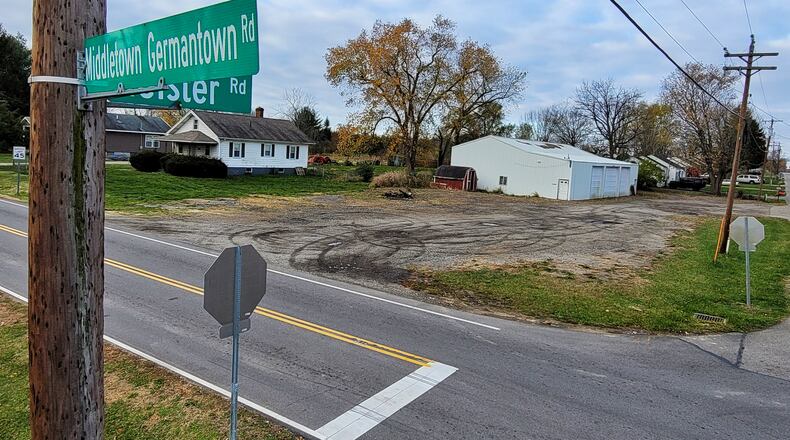Several neighbors near the controversial new Dollar General store proposed for the corner of Keister and Middletown Germantown roads filed a federal due process lawsuit hoping to cancel variations the Butler County Board of Zoning Appeals granted because Daniel, a township trustee — who has resigned from the zoning board — had a financial conflict of interest when he voted in favor of several variances.
Daniel held the mortgage on the two properties in question that were owned by his son at the time of the BZA vote. If he had not participated in the vote it would not have passed for lack of a quorum on the board.
U.S. District Court Judge Susan Dlott on Nov. 16 denied the motion for a preliminary injunction.
“The court concludes that plaintiffs have not established a likelihood of success because they did not have a protected property interest in the discretionary variance approval vote by the Zoning Board sufficient to confer standing or create procedural due process rights...,” Dlott wrote.
“The actions of Alan Daniel and the Zoning Board to have allowed Daniel to vote in favor of the variances despite his conflict of interest are offensive. The citizens of Butler County, including plaintiffs, deserve better from their governmental representatives.”
Dlott had not yet ruled on the merits of the entire case when the neighbors appealed. The 6th Circuit agreed at least in part with Dlott’s ruling because that panel also denied a preliminary injunction, but is continuing to review the case.
“They challenge the grant of the variance based on Daniel’s unlawful participation in the vote. But there is no property interest in a particular outcome when a zoning board’s decision to grant or deny a variance is discretionary,” the appeals court wrote. “The Board had discretion to grant or deny Germantown’s application for a variance. Further, citizens do not have “a fundamental right or liberty interest in having the government make discretionary decisions free from corruption independently from whether the citizen has a separate property or liberty interest at stake.”
The neighbors in a brief stated the two courts, Butler County, Daniel and Germantown are dwelling too much on process and not the crux of the case. They say they are not trying to stop the Dollar General itself it is the variances they object to.
Their lawyer wrote James and Tonja Back who live directly adjacent to the property will be harmed by the elimination of the landscape buffer between their home and the store and the reduced number of parking spaces could cause shoppers to park on in their yards.
“The district court, the (appellate) motions panel, and (defendants) paid too short shrift to the fundamental questions of Ohio property law at issue in this case,” the brief reads. “The residents do not claim, as Dollar General suggests, that the store should be prohibited, or that even construction should be halted, but instead seek a preliminary injunction limited only to the variances obtained in violation of their individual property rights.”
Since the appeals panel has only preliminarily said their case is weak, the neighbors asked them to reverse Dlott’s ruling and grant preliminary injunction on the variances or send it back to her for further consideration of all the issues.
“The gravity of the district court’s error cannot be overstated. Following the district court’s logic, due process is no longer required for variances in Ohio,” the brief reads. “Neighbors do not need to be notified. Hearings do not need to be held. Bribes can be offered, crimes can occur, and contiguous and affected neighboring property owners can literally do nothing about it, because – according to the district court – they have no property interest to protect in their own homes.”
Court documents indicate there could be an oral argument in the case. Chief Assistant Prosecutor Dan Ferguson said he can’t comment on the case at this juncture. Matt Mill-Novak told the Journal-News they will continue to fight.
“But we obviously feel strongly that Mr. Daniel’s actions were unlawful, and that our clients were denied due process,” he said. “We will continue to do our best to argue on their behalf.”
About the Author

